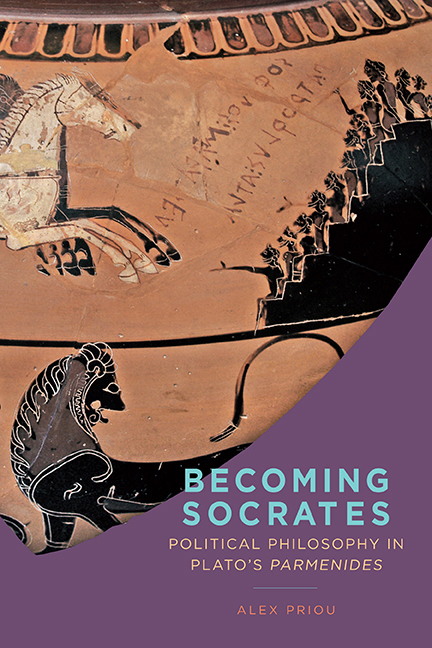3 - Parmenides on Eleatic Monism: Parmenides 137c4–166c5
Published online by Cambridge University Press: 15 April 2021
Summary
First Deduction (137c4–142b3)
Parmenides begins the first deduction (and so the training as a whole) by stating the positive version of the hypothesis as the protasis of a conditional: “if one or unity (ἕν) is …” (137c4). He immediately concludes from this that it couldn't in any way be many, which Aristoteles affirms (137c4–5). This agreement constitutes the overarching premise of the first deduction: unity can have no compromise with plurality, but must be one in every respect. By considering the character of the one in its unity, and only in its unity, the first deduction considers unity with respect to itself. We will have to wait for the second deduction to consider the one with respect to what differ from it, which, as different, will be many. For the first deduction, the task will be to test the validity of the inference from the hypothesis that unity is to the conclusion that it is in no way many. To employ the language of the fourth part of Parmenides’ critique of the ϵἴδη, the first deduction will examine the consequences for the most precise unity, that unity characteristic of divine knowledge and most needed to guide human life predictably toward the good—it will examine providential knowledge. Accordingly, in the first deduction Parmenides tests the consequences for the demand of precision, eventually considering what effect meeting that demand has on our attempt to meet the demand of access. We see from the outset, then, how the training addresses the issues Parmenides raised in the greatest impasse.
The premise of unity's complete lack of plurality is first treated with respect to part/whole relationships. Parmenides claims it's necessary that neither is there a part of it nor is it a whole (137c5–6). Upon Aristoteles’ request, Parmenides clarifies what he means: the part is surely a part of a whole, while, regarding the whole, it would be that of which not one part is absent, both of which propositions Aristoteles affirms (137c6–8).
- Type
- Chapter
- Information
- Becoming SocratesPolitical Philosophy in Plato's 'Parmenides', pp. 74 - 192Publisher: Boydell & BrewerPrint publication year: 2018

